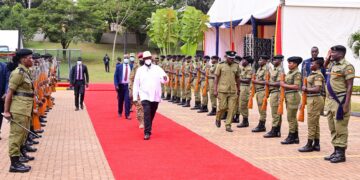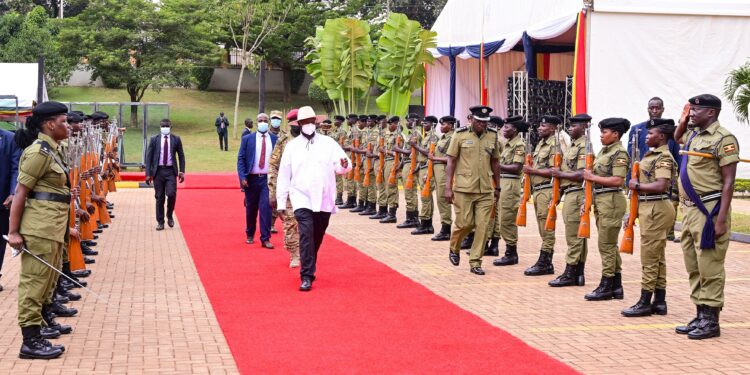President Yoweri Kaguta Museveni has urged Uganda’s security agencies to place national stability and security above immediate welfare concerns, emphasizing the need for ideological clarity and strategic planning.
Speaking at the opening session of the 28th Police Council Meeting at the Police Headquarters in Naguru, Kampala, President Museveni stressed that security institutions must operate within available resources, avoiding unrealistic planning that has hindered many African nations.
Security Before Welfare
Museveni highlighted Uganda’s own experience, recalling the early days of the National Resistance Army (NRA), which operated for 17 years without salaries.
“When we started our struggle in 1971 under FRONASA, we were volunteers. We had to save our country first and forget about salaries. That is why we were able to liberate Uganda,” he said.
He cited historical support from leaders like Mwalimu Julius Nyerere of Tanzania and Samora Machel of Mozambique, who provided training grounds for Ugandan fighters. He reiterated that Uganda’s stability was prioritized over immediate welfare concerns, a strategy that has allowed the country to maintain security.
“Even in Somalia, we have been there for 17 years. If we tied the army’s existence to salaries, we would not have lasted,” Museveni stated.
Call for Cost-Effective Welfare Strategies
While acknowledging the importance of improving security personnel’s welfare, Museveni advised on cost-effective strategies, such as constructing institutional housing to reduce expenses.
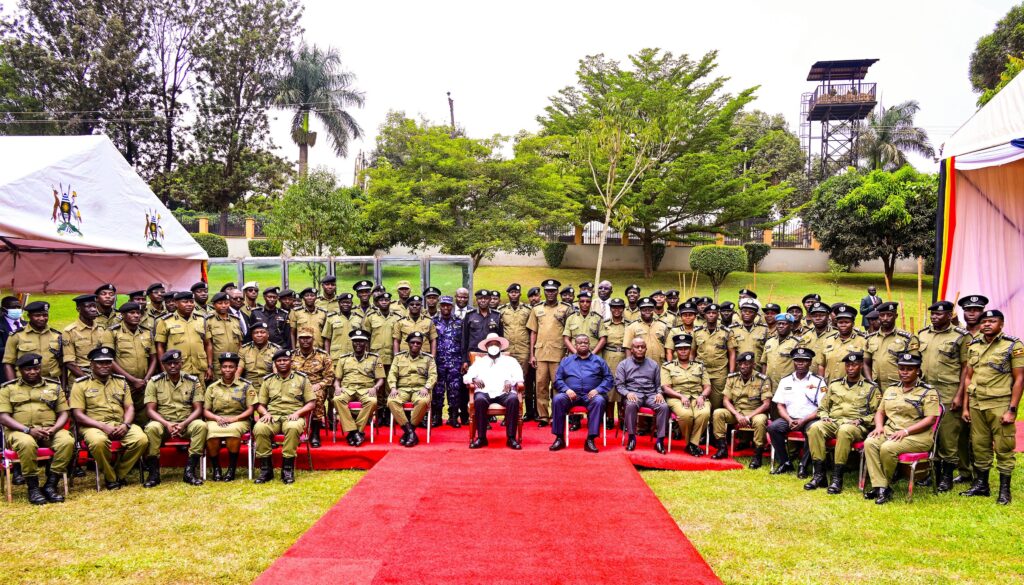
“The police and army should build their own institutional houses instead of relying on contractors who inflate costs,” he noted.
He also encouraged security agencies to set up self-sustaining initiatives, including medical centers and education facilities for officers’ children.
Embracing Modern Policing Technologies
Museveni urged law enforcement agencies to adopt technology-driven solutions for policing, citing the effectiveness of CCTV surveillance, forensic analysis, and canine units in crime detection.
“In developed countries, officers don’t stand on roads; they monitor surveillance cameras from command centers. These are force multipliers that enhance policing,” he said.
Rejecting Tribalism and Promoting Unity
The President also warned against tribalism and sectarianism, emphasizing that Uganda’s prosperity depends on national unity and economic integration.
“Some people talk about tribes, but they don’t realize they are enemies of their own groups. The Banyankole, who are cattle keepers, need Uganda to sell their milk and beef. That’s why NRM promotes national unity over tribal divisions,” he explained.
He linked Uganda’s economic growth to regional and international markets, comparing the country’s need for integration to Germany and Italy’s unification in the 19th century.
Internal Affairs Minister Warns Against Security Abuse
Minister for Internal Affairs, Maj. Gen. Kahinda Otafiire, cautioned security officers against abusing their power, emphasizing that no one is above the law.
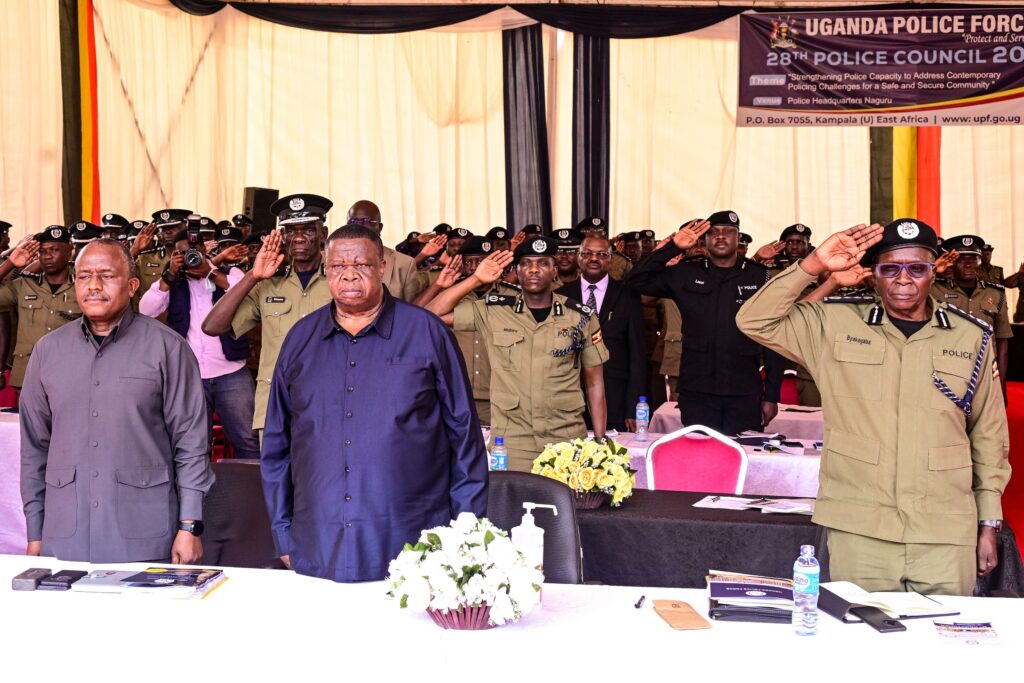
“Nobody is above the law,” he stated, condemning past instances where officers used their positions to intimidate civilians, seize property, or oppress the public.
He assured the public that impunity within the police force would no longer be tolerated.
Police Chief Outlines Achievements and Future Plans
Inspector General of Police (IGP) Abas Byakagaba welcomed the President to the meeting and highlighted ongoing reforms and achievements in crime reduction, modern policing, and officer welfare improvements.
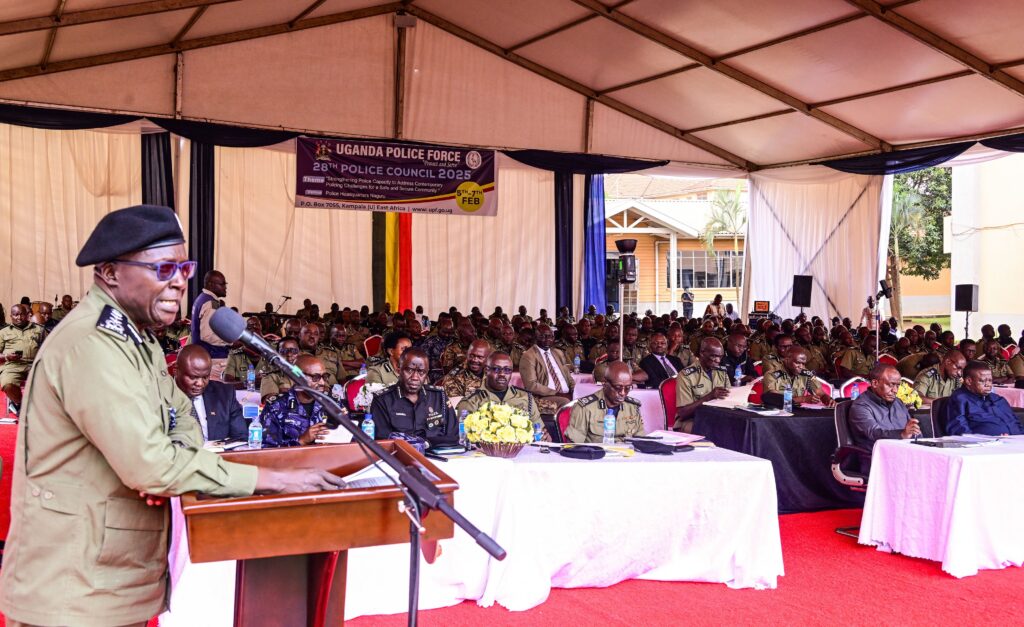
“In line with Your Excellency’s guidance, we have expanded our presence to ensure a quicker response to crime,” Byakagaba said, noting the establishment of 13 new police regions covering 79 districts.
He also outlined strategic priorities, including preparations for upcoming elections, expanding anti-crime infrastructure, and strengthening ICT capabilities.
“We plan to recruit 12,000 professional police constables in the 2024/25 financial year to enhance security across the country,” he added.
Byakagaba commended the government for increasing police officers’ salaries, a move expected to boost morale and professionalism within the force.
The meeting, themed “Strengthening Police Capacity to Address Contemporary Policing Challenges for a Safe and Secure Community,” was attended by top security officials, including the Permanent Secretary of Internal Affairs, Lt. Gen. Joseph Musanyufu, and members of the Police Council.
